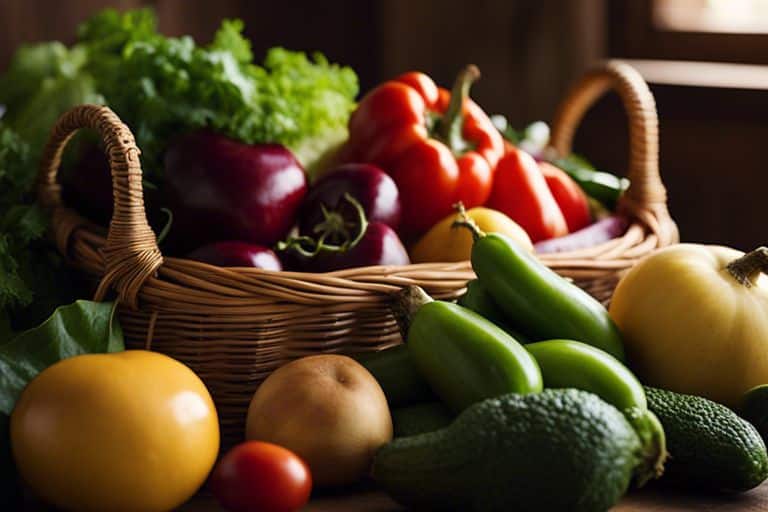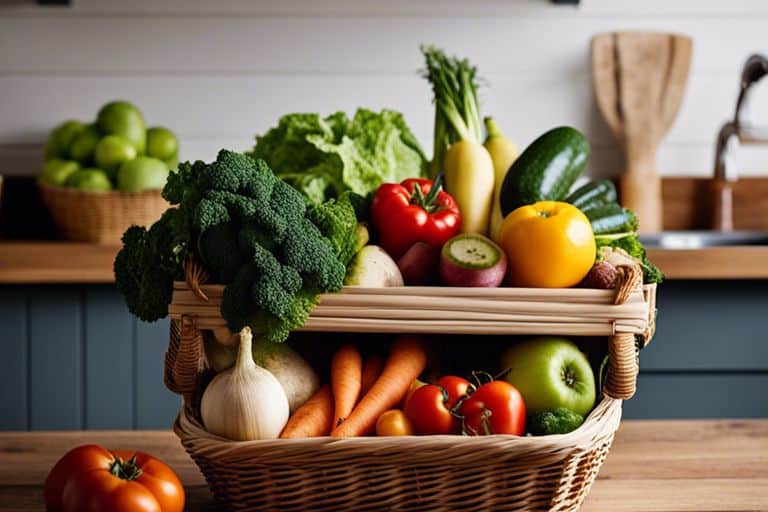Environmentally conscious consumers and proponents of sustainable living are increasingly turning to organic food for its positive impact on both personal health and the planet. Organic farming methods prioritize soil health and biodiversity, leading to reduced pollution, better water conservation, and lower energy consumption. The shift towards organic practices promotes healthier ecosystems, supports local economies, and safeguards the well-being of future generations. In this blog post, we will investigate into the myriad reasons why choosing organic food is not just a trend, but a critical step towards a more sustainable future.
Key Takeaways:
- Environmental Benefits: Organic farming promotes soil health, water conservation, and biodiversity, making it crucial for a sustainable future.
- Health Benefits: Organic food is free of synthetic pesticides and chemicals, thus reducing the risk of health issues and promoting overall well-being.
- Supporting Local Communities: Choosing organic food supports local farmers and sustainable agricultural practices, contributing to the economy and community resilience.

Benefits of Organic Agriculture
Environmental Impact
The practice of organic agriculture has a significant positive impact on the environment. On organic farms, synthetic pesticides and fertilizers are replaced with natural alternatives, reducing harmful chemical runoff into water sources and minimizing soil erosion. By promoting biodiversity and healthy ecosystems, organic farming helps to preserve wildlife habitats and protect endangered species.
Additionally, organic farming methods promote carbon sequestration in the soil, helping to mitigate climate change. Organic agriculture also eliminates the need for genetically modified organisms (GMOs), reducing the potential risks associated with their cultivation and consumption.
Health Benefits for Consumers
The consumption of organic food offers a host of health benefits for consumers. The higher nutrient content in organic produce, free from synthetic additives, has been linked to improved overall health and well-being. Studies have shown that organic food is less likely to contain pesticide residues, making it a safer choice for those looking to reduce their exposure to harmful chemicals.
The reduced use of antibiotics in organic animal farming also helps to combat the rise of antibiotic-resistant bacteria, safeguarding public health in the long run.
With the growing awareness of the interconnectedness between our food choices and the health of the planet, the demand for organic food continues to rise. Choosing organic is not just a personal decision for better health; it is also a vote for a more sustainable and environmentally friendly future for generations to come.
Organic Farming Practices
There’s a growing recognition of the importance of organic farming practices for a sustainable future. Organic farming methods prioritize the health of the soil, promote biodiversity, and reduce reliance on synthetic inputs such as pesticides and fertilizers.
Soil Management
To maintain soil health, organic farmers focus on enhancing soil fertility through practices such as crop rotation, cover cropping, and composting. These methods help to improve soil structure, retain moisture, and increase the presence of beneficial microorganisms. By avoiding the use of synthetic chemicals, organic farmers protect the long-term productivity and sustainability of the soil.
Biodiversity and Pest Control
For organic farmers, biodiversity is a key aspect of pest control. By cultivating a diverse range of crops and incorporating natural habitats for beneficial insects, organic farms create a balanced ecosystem where pests are kept in check without the need for harmful chemicals. Additionally, techniques like intercropping and polyculture help to reduce pest pressures and enhance natural pest control mechanisms.
A diverse ecosystem on organic farms not only supports the health of the soil and crops but also provides habitat for a variety of beneficial organisms. These organisms, such as pollinators and natural predators, play a crucial role in maintaining the overall balance of the ecosystem and contributing to sustainable agricultural practices.
Economic and Social Aspects
Despite the numerous benefits of organic food for our health and the environment, its impact on economic and social aspects cannot be overlooked. In a world where globalization has dominated the food industry, supporting local economies through organic farming practices is crucial for a sustainable future.
Supporting Local Economies
Economies thrive when local businesses are supported, and organic farming plays a significant role in this aspect. By choosing to buy organic produce from local farmers, consumers are not only promoting sustainable agricultural practices but also contributing to the growth of their community. Local farmers benefit from the direct sale of their products, receiving fair prices for their hard work, which in turn helps in strengthening the local economy.
Furthermore, supporting local economies through organic food production reduces the carbon footprint associated with transportation and storage. By minimizing the distance that food travels before reaching consumers, organic farming helps in reducing greenhouse gas emissions and supports a more environmentally friendly food system.
Social Responsibility and Ethical Considerations
Local communities are the backbone of society, and by choosing organic food, individuals uphold their social responsibility towards their neighbors and the environment. Organic farming practices prioritize the well-being of both consumers and farmers, ensuring that food is produced in a way that is ethical and sustainable.
Social responsibility also extends to ethical considerations such as fair labor practices and animal welfare. Organic farming standards prohibit the use of harmful chemicals and pesticides, promoting a safer working environment for farmworkers. Additionally, organic farming methods prioritize the humane treatment of animals, offering them a more natural and healthy living environment.
Challenges and Solutions
Overcoming Barriers to Adoption
Barriers to the adoption of organic farming practices exist at various levels, from individual farmer resistance to lack of access to markets and inadequate government support. One significant barrier is the misconception that organic farming is less productive and economically viable compared to conventional methods. In reality, studies have shown that organic farms can be just as productive, if not more so, while also being environmentally sustainable.
Education and training programs play a crucial role in overcoming these barriers. By providing farmers with the knowledge and skills needed to transition to organic farming, we can empower them to overcome their doubts and embrace more sustainable practices. Additionally, creating incentives such as subsidies and market support can help offset the initial costs of transitioning to organic methods, making it a more attractive option for farmers.
Future of Organic Farming
Barriers to the future expansion of organic farming include the limited availability of organic seeds and the challenge of scaling up production to meet growing demand. However, advancements in organic seed breeding and increased investment in research and development are helping to address these challenges. By fostering collaboration between farmers, researchers, and policymakers, we can ensure a more robust future for organic farming.
Overcoming these barriers is vital for the continued growth of organic farming and its potential to contribute to a more sustainable future. By investing in research, education, and market support, we can create a food system that is not only healthier for consumers and the environment but also economically viable for farmers in the long term.
Final Words
From above, it is clear that organic food plays a crucial role in ensuring a sustainable future for our planet. By choosing organic practices, we support biodiversity, protect soil health, and reduce our exposure to harmful chemicals. Organic farming methods also promote water conservation and decrease greenhouse gas emissions. Incorporating organic food into our diets not only benefits our own health but also helps to preserve the environment for future generations. Embracing organic food is not just a trend; it is a necessary step towards building a more sustainable and resilient food system for the long term. It is imperative that we prioritize organic food production to ensure a healthier planet and a brighter future for all.
FAQ
Q: Why is organic food important for a sustainable future?
A: Organic food is important for a sustainable future because it promotes environmentally friendly practices such as crop rotation, use of natural fertilizers, and elimination of synthetic chemicals. This helps preserve soil fertility, reduces water pollution, and promotes biodiversity, making it a crucial component of sustainable agriculture.
Q: How does organic food contribute to environmental sustainability?
A: Organic food production reduces the carbon footprint by minimizing the use of fossil fuels, synthetic pesticides, and fertilizers. This helps combat climate change, preserve water quality, and protect wildlife habitats. Choosing organic food supports healthier ecosystems and promotes overall environmental sustainability.
Q: What are the health benefits of consuming organic food?
A: Organic food is free from synthetic pesticides, herbicides, and genetically modified organisms (GMOs), making it a healthier option for consumers. Studies have shown that organic food may contain higher levels of nutrients and antioxidants, which can contribute to better overall health. By choosing organic, you are not only supporting sustainable agriculture but also prioritizing your well-being.

